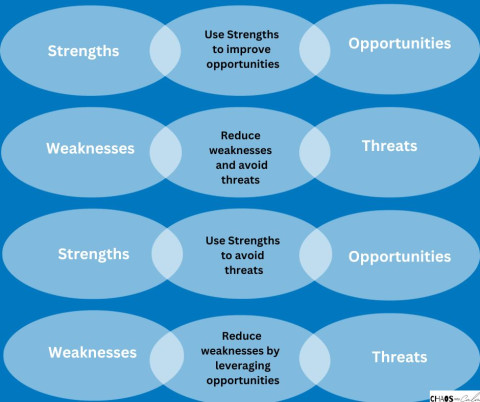Marketing strategies for vegan businesses
Marketing strategies for vegan businesses
Marketing strategies for vegan businesses need to resonate with the ethical, environmental, and health-oriented values that many vegans and vegan-curious consumers hold.
1. Content
Share the benefits of veganism, from health and environmental perspectives to ethical reasons.
Use infographics, blog posts, videos, and webinars to make content engaging and digestible.
Develop high-quality, value-adding content like blog posts, videos, or infographics that educate about veganism, share vegan recipes, or offer tips.
Share success stories or testimonials from customers who have benefited from your products.
Offer resources on the benefits of veganism. This could include health benefits, environmental impacts, or ethical reasons.
Advocate for broader causes in line with veganism, like environmental conservation or animal rights.
2. User-Generated Content
Encourage customers to share photos, recipes, or testimonials of your vegan products or services.
Feature these posts on your website or social media to create a community feeling.
3. Collaborations & Partnerships:
Team up with complementary vegan brands or influencers to co-host events, webinars, or giveaways.
Consider collaboration with non-vegan brands for limited vegan offerings, introducing your brand to their audience.
Collaborate with other vegan brands or businesses for joint promotions, bundle deals, or events.
Partner with vegan influencers or chefs for endorsements, tutorials, or recipe development.
4. Loyalty Programs
Reward customers for repeat purchases or referrals, making them feel valued and encouraging brand loyalty.
Encourage repeat business and word-of-mouth marketing by offering loyalty discounts or referral bonuses.
5. Interactive Online Events:
Host Q&A sessions, webinars, or live demonstrations.
Virtual tours of your production facility can also offer transparency and trust.
6. Sampling & Pop-Ups
Offer samples in stores or at events to let customers try before they buy.
Pop-up events can create buzz, especially in high footfall areas.
Attend vegan fairs, markets, or other events to showcase your products.
Offer free samples or demonstrations to attract potential customers.
Offer sample sizes or trial packs. This can help potential customers who are hesitant about transitioning to vegan alternatives.
7. Storytelling & Brand Narrative
Share the story behind starting your vegan business, emphasising passion, dedication, and the drive towards a better world.
Use video content or a dedicated "Our Story" section on your website.
8. Sustainability and Ethical Messaging
Emphasise your brand's sustainability efforts, whether it's sourcing or waste reduction.
Discuss ethical practices, such as fair wages or cruelty-free testing, if applicable.
Opt for eco-friendly packaging, which not only appeals to many vegans but also differentiates your brand in the broader market.
9. Limited-Time Offers & Seasonal Products
Introduce seasonal or limited-edition products to create urgency and anticipation.
10. SEO & Content Marketing
Optimise your website for search engines to draw organic traffic.
Produce regular, high-quality blog posts or articles on veganism, its benefits, or any relevant topic to your business.
Invest in search engine optimization (SEO) to ensure that your vegan business appears prominently in search results.
Use search engine marketing (SEM) campaigns to target keywords related to veganism and your specific product/service.
11. Email Marketing
Send regular newsletters with updates, offers, or educational content.
Segment your email list to offer personalised recommendations or information.
12. Social Media Engagement
Regularly post on platforms like LinkedIn, Instagram, Facebook, TikTok, or Pinterest, tailoring your content to each platform's audience.
Use polls, stories, and reels for interactive content.
Share behind-the-scenes content, customer reviews, and interactive content like polls, quizzes, or challenges.
Utilise platforms popular among your target audience. Instagram, for instance, is great for visual content like food or fashion.
13. Feedback & Reviews
Encourage satisfied customers to leave reviews on platforms like Google, Yelp, or Trustpilot.
Address any negative feedback constructively, showing your commitment to customer satisfaction.
14. Local Community Engagement
Attend or sponsor local events, markets, or fairs, introducing your brand to the local community.
Offer workshops or classes related to your product/service.
Participate in vegan forums, Facebook groups, and other online communities. Answer questions, provide advice, and gently introduce your business where appropriate.
Engage with influencers or bloggers in the vegan space for product reviews, features, or collaborations.
15. Affiliate & Ambassador Programs
Work with influencers or loyal customers who can represent your brand to a wider audience.
Provide them with affiliate codes or links to track sales and reward them accordingly.
16. Leverage Certifications & Labels
Acquire relevant certifications (e.g., Certified Vegan, Cruelty-Free) and prominently display these labels on your products and marketing materials.
In all marketing efforts, it's vital for vegan businesses to stay authentic and true to their core values. Consistent messaging, transparent practices, and genuine engagement with the community will go a long way in building trust and brand loyalty crucial for long-term success.

September 30, 2023
Choosing the right type of business plan
Types of business plans Choosing the right business plan is crucial as it t...
5 min read

September 20, 2023
How to carry out a SWOT analysis
How to carry out a SWOT analysis Whether you're launching a new venture, co...
2 min read

September 20, 2023
Verify your vegan business idea
Verify your vegan business idea What are your personal reasons for starting...
5 min read


